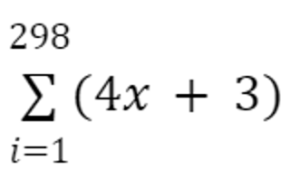Honors Precalc Teachers Give It a B+
“Why do we need to learn logarithms?” “When in my life will I need to differentiate?” “If I’m chased by a grizzly bear in rural Alaska, how will knowing

save me?” This is just a meager selection of fervent student opinions on Honors Precalculus at the Upper School, colloquially known as the hardest Lakeside math course.
In response, Honors Precalculus Teachers decided to reevaluate the subject using the 4.3 grading scale. On average, teachers gave mathematics a 3.25/4.3 (B+). “Basically a failing grade,” reacts one Lakeside student. Acknowledging that once upon a time, math had been “fun and all that,” the teachers evaluate the subject to now be “outdated, obsolete, and quite limiting,” no pun intended.
In their grading of the subject of mathematics, the Honors Precalculus teachers also cited Gödel’s Incompleteness Theorems, which stipulate that there are some mathematical statements which are true but impossible to prove. “We have been preaching the principles of ‘show the work that proves your answers’ and ‘succinctly justify your findings’ since day one,” lamented one teacher, “yet we cannot continue to ignore the hypocrisy.” Disappointed by math’s inability to completely justify its claims, they “must give it, at best, a B+.”
Additionally, citing a phrase popularized by Upper School drama teacher Michael Place, the teachers explain that math “just does not feel hot to us.” Teaching the subject to “a room of acceptably enthused Lakesiders at 8:30 A.M. might spark joy,” but going through the workbooks assigned to students reveal the ugly but true side of math. Mathematics, in its purest, unfiltered form, is “dull, tormenting, and fundamentally nugatory.”
After careful consideration, the Upper School math department has decided to temporarily suspend Honors Precalculus from the school curriculum. “We still need to be considerate towards colleges whose feelings will be hurt by the absence of precalc,” explain the teachers, “but permanent removal will be inevitable.” (Interestingly, the teachers mentioned that students will still be expected to go into Calculus). A replacement course will be revealed by mid-April. Student opinion towards the change is overwhelmingly positive. Some want an enhancement of existing precalc highlights: one student expresses that “Ms. Badus’s impeccably mesmerizing discussions on fat bears thoroughly captivates [them]” and should be made into a discipline itself.
Just as Rome was not built in a day, this new course is constructed with careful consideration. One teacher is designing a class where students must raise frogs at a rate that forms a logistic curve. Another delightedly proposes an interdisciplinary study in which students use statistics to analyze the impacts of raccoons on the American economy. One aspect is for certain — the incorporation of competencies and mindsets. Students, prepare to let your cognitive flexibility be stretched in “unprecedented ways.”
Hallie X ‘23 has spent much of her time over the past three years contributing to Tatler’s collection, amassing over 20 articles in total. She covers...
Ever since his little incident in April 26, 1986, Rohan Dhillon has been on the run from a variety of governmental agencies and human rights organizations—...
